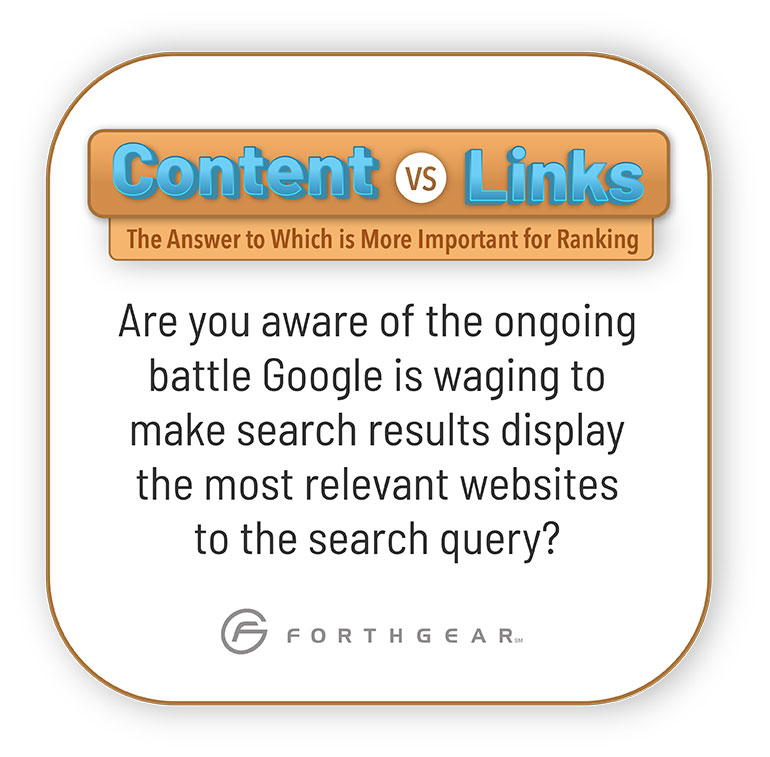By Dustin Williams
If you have been doing search engine marketing for as long as I have you are probably aware of the ongoing battle Google is waging to make search results display the most relevant websites to the search query. Even Google’s recent core algorithm updates were centered around this primary goal. They want to provide the best user experience and so it makes sense that all research and algorithm updates would have this primary goal.
Shifting from Links to Content
In 2003 Google launched an algorithm update which shook the SEO world and turned the search results upside down. The update (named “Florida”) introduced link analysis as a major ranking signal. SEO experts believe this was done to allow Google to better analyze inbound links and devalue those which are deemed irrelevant. Since then Google has continued to make updates focused on links due to the impact they have on domain authority and keyword rankings.
Introducing Google’s Penguin Algorithm
In April 2012 Google launched another major update, which was separate from their main algorithm and focused mainly on two manipulative ranking tactics. The algorithm was named Penguin and was targeted towards link schemes and keyword stuffing. In the span of about four years Penguin went through several updates as Google gathered data about links to find patterns around link quality and relevance. Towards the end of 2016, Google pushed out a major update to Penguin, which made it part of their core algorithm.
Content Outweighs Links
In 2013 Google launched the Hummingbird algorithm, which focused on content and the meaning behind keyword searches. Hummingbird looked at conversational search and topical relevance rather than focusing on specific keywords. This made quality and engaging content even more important to website rankings. Since Hummingbird looks at topical relevance and user intent, it is important to have comprehensive content which answers a website visitor’s questions. Your website also needs to have a clear topic relating to your industry. A recent study by Neil Patel supports the importance of topical relevance for search engine rankings and suggests this is now is more critical than inbound links.
Content vs Links: Our Research and Findings
After reading Neil Patel’s report on his study I did some research to see if I could find the same correlation between website topical relevance and search engine rankings. I researched several companies in different industries, including FORTHGEAR, and found the same correlation. Comprehensive and engaging content, which satisfies the user intent could help a website to outrank competitors with more inbound links and a higher domain authority. I also found that websites with a clear focused topic ranked higher in search results.
Don’t Discount Links Completely
While my research supports what Neil Patel’s study found, it doesn’t make links completely irrelevant. Sites with very few links still showed a pattern of struggling to outrank those with higher domain authority. However, Hummingbird is helping Google accomplish its goal of making search results more relevant to user intent. Now quality content is the most important factor for ranking. If you focus on engaging content centered around a focus topic, links will come naturally as users engage with it.


